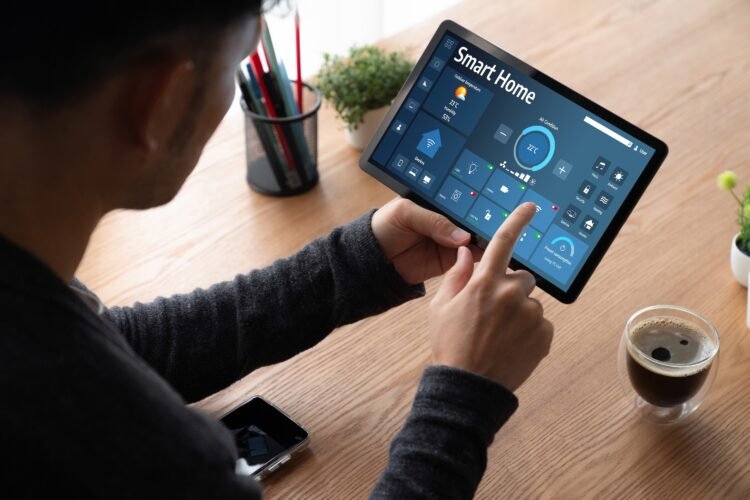Smart technology is no longer a novelty in rental housing—it’s now a key driver of performance and profit. As demand for convenience, control, and energy efficiency grows, smart home features are increasingly tied to higher retention, improved tenant satisfaction, and stronger financial outcomes.
Recent insights from the 2025 Rently Smart Apartment Trends Report highlight this shift, showing that nearly two-thirds of renters are willing to pay more each month for units with smart amenities. In fact, over half of those surveyed are comfortable paying at least $20 extra, signaling that tech-forward offerings are no longer seen as optional perks. They’re becoming expectations and valuable ones at that.
Contents
Smart Features Unlock Lease Longevity
Tenant turnover remains one of the most expensive operational challenges for rental property owners. Between cleaning, marketing, and vacancy loss, replacing even a modest number of residents can eat significantly into profits. Smart tech offers a practical path to reducing churn by enhancing the renter experience in ways that encourage longer stays.
Features like app-controlled access and automated maintenance alerts enhance daily living. These tools help residents feel more in control of their environment and more confident in their landlord’s responsiveness. When renters feel that their homes are modern and well-managed, they’re more inclined to renew their lease. Reducing turnover in this way supports stronger net operating income (NOI) and improves overall portfolio performance.
Additionally, the presence of smart features makes it easier to streamline maintenance and property operations. Managers can diagnose issues remotely and respond faster, boosting renter satisfaction while reducing labor hours. The result is a win-win: happier tenants and lower costs.
Premium Amenities, Premium Pricing
Renters today aren’t just seeking convenience—they’re willing to pay for it. The Rently research underscores this willingness, particularly when it comes to smart home elements that enhance safety or reduce utility costs. These features deliver tangible value that renters understand, making them ideal candidates for tiered pricing strategies.
For example, smart thermostats allow residents to customize their comfort while potentially saving on energy bills. Smart locks and security cameras increase peace of mind, especially for residents who live alone or receive frequent deliveries. When these benefits are bundled into a clear, premium offering, they justify higher monthly rents without requiring significant investment in physical renovations.
For owners and investors, this creates a meaningful opportunity to raise average rent per unit while keeping operating costs flat. Smart technology becomes a revenue lever, one that aligns with renter demand and market trends.
Operators Are Future-Proofing with Tech
Smart home technology isn’t just a tool for short-term returns; it’s also a long-term investment in asset value. Properties that offer modern, tech-forward experiences are better positioned to meet renter expectations for years to come. This readiness helps guard against vacancy risk and pricing stagnation, particularly as older buildings struggle to compete.
Investors, too, are paying attention. They’re favoring properties with built-in infrastructure for smart upgrades. From self-guided tours to remote lock access, the operational efficiencies also appeal to property managers facing staffing shortages. These technologies reduce friction in day-to-day management and improve responsiveness to resident needs.
Operators who adopt smart tools today are laying the groundwork for future scalability. As energy regulations tighten and resident expectations rise, these investments will become not just strategic but essential. Properties that fail to adapt may lose out to better-equipped competitors. Those that embrace tech now will continue to lead in retention, rent growth, and tenant satisfaction.
Technology Is the New Curb Appeal
While location, size, and finishes still matter, today’s renters are looking beyond appearances. They want a home that feels secure, connected, and designed for modern living. Smart technology helps properties meet that expectation by delivering visible, daily value.
For operators, the competitive advantage lies in offering technology that enhances the renter experience while also supporting backend efficiency. From leak detection to digital access management, these features don’t just impress—they perform.
The most successful property managers aren’t treating tech as a trend to catch up with. They’re integrating it into the foundation of their strategy, using it to differentiate, drive renewals, and maximize net operating income.
Smart Business Starts with Smart Technology
As the rental landscape continues to evolve, one thing is clear: renters notice smart features—and they value them. Those who feel secure, empowered, and supported by the technology in their homes are more likely to stay, pay more, and speak positively about their experience.
In 2025, smart home technology is not just an upgrade. It’s a business imperative. Operators and investors who prioritize it today will be best positioned to meet market demand, outperform competitors, and future-proof their portfolios for the years ahead.



